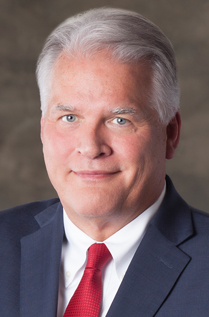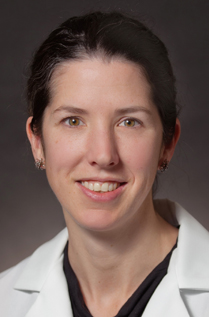By Kasey Fuqua
718,000 Virginians have no health insurance, according to the Virginia Health Care Foundation. While hospitals provide charity care for these uninsured patients, the lack of insurance can have profound effects on their health—and the health of Virginia’s communities.
Fortunately, Medicaid expansion and improved access to health insurance provides hope. These newly passed measures may remove challenges in caring for patients and provide benefits to all members of the Hampton Roads community.

The Challenges of Caring for the Uninsured
In Virginia, hospitals spend more than $600 million per year providing charity care or financial assistance to underserved patients, according to a report from the Virginia Hospital & Healthcare Association (VHHA). They spend another $347 million on community programs that support health. From medication programs to community gardens to health screenings, hospitals strain to care for the health needs of the underserved while continuing to operate on a positive margin.
“I think more and more, you’re finding that your hospitals and healthcare systems have become a safety net for patients,” says Raymond McCue, MD, Chief Medical Officer for Chesapeake Regional Healthcare. “I think that’s the obligation of society at large to provide that safety net for these underserved and important members of our community.”
The weight of providing unreimbursed care has taken its toll on hospitals across Virginia. In the same report, the VHHA states that 23 percent of Virginia’s hospitals have negative operating margins. The new Medicaid expansion may help reduce this cost and provide patients with greater access to both the physicians and medications they need.
“The real challenge in caring for uninsured patients is continuity after they leave the hospital,” says Dr. McCue. “We have to use a lot of resources to care for patients when they are ready to go back home or back into their communities.”

Emily Lieb, MD, medical director for the Bon Secours Care-A-Van, agrees, saying that finding the right specialist for patients who need more advanced care can be difficult.
“Bon Secours specialists do see patients without insurance, but there are still some specialists not included in the Bon Secours systems,” says Dr. Lieb. “We still have a really hard time getting those specialists to see uninsured patients.”
While Dr. Lieb provides primary care to uninsured patients on the Care-A-Van, she has difficulty meeting all of their preventive care needs. She and her staff strive to get patients access to recommended screenings like colonoscopies or screenings for diabetic eye diseases. Her patients can also have trouble obtaining medicines for chronic conditions such as hypertension or diabetes.
“We have real problems with medication compliance,” says Dr. Lieb. “Patients often go periods of time where they are not able to take high blood pressure medicine or they are not taking it as prescribed, putting them at risks for strokes and heart attacks.”
At Chesapeake Regional Healthcare, healthcare providers often provide patients with medications before they leave the hospital to help them get started on recovery. Its transitional care clinic strives to fill in gaps with both medicines and follow-ups for these patients. But for many, preventive care is still out of reach.
“When you are dealing with daily struggles of food, clothing and shelter, your healthcare drops pretty far down on that list of concerns,” says Dr. McCue. “This population is missing out on the benefits of preventative care.”
Hospitals aren’t alone in their efforts to fill in care gaps for these patients. Physicians often care for the health of the community in both their professional and personal lives.
“Physicians play an important role beyond inpatient care,,” says Dr. McCue. “The support from community physicians is extraordinary, not only as individuals, but as part of the various professional organizations they belong to.”
Physicians often provide charitable care in their private practices, following up with patients who have had an acute health crisis. Physicians also staff free clinics, serve on the boards of outreach programs, provide expert consultation for community health initiatives and donate money to community charities.
For patients, physicians can also serve as a vital link to resources like Every Woman’s Life, which provides free mammograms, or prescription assistance programs through pharmaceutical companies. But even with all this work from hospitals, physicians and community organizations, many community members still lack the access to care they need.
How Medicaid Expansion Can Help the Hampton Roads Community
Medicaid expansion may provide the boost in access that patients need to achieve better health.
“In Virginia, the group that will benefit the most from Medicaid expansion are the folks that are poor enough that they have not been able to afford care through the exchanges that were put in place with Affordable Care Act,” says Dr. Lieb.
However, these patients were not quite poor enough to qualify for Medicaid until recently. Up to 400,000 working Virginians fell into this coverage gap, including the majority of the patients who seek care on the Care-A-Van. This number includes working adults under the age of 65 with no children. No matter how little these adults make, they did not qualify for Medicaid. Now, adults who make less than $16,643 per year have access to coverage.
Many families also fell into the coverage gap. Families of four who make as little as $9,516 living in Norfolk did not qualify for Medicaid before, but also couldn’t afford to purchase health insurance off the marketplace, even with help from subsidies.
“These are families,” says Dr. McCue. “They are doing everything they can for their kids. The least we can do is make sure we can cover their basic health needs.”
Medicaid expansion may help cover these families. Under expansion, a family of four could make up to $34,638 and still qualify for coverage. These patients will soon have new access to a variety of preventive care services that could reduce healthcare costs.
Dr. Lieb says costs for both hospitals and patients may be reduced through multiple factors, such as reduced ER utilization and prevention of health complications through reliable, regular care.
With more patients covered by health insurance, hospitals could see millions of dollars added to their annual budgets through reduced costs and improved reimbursement, leaving room for new equipment and services that benefit all community members.
“Certainly Bon Secours as a health system has a large amount of money they don’t collect because they do have a mission to take care of the uninsured,” says Dr. Lieb. “If those patients suddenly became insured, there would be a huge financial benefit.”
Expanding services also means an expanding staff. The VHHA estimates that, had Medicaid been expanded in 2013, it would have generated 30,000 new healthcare jobs by 2018 and added more than $2 billion to the state’s economy through both new jobs and a healthier, more productive community.
“If fewer people are having strokes because they can afford their diabetes medicines, that’s good for society as a whole because then you retain more productive members of society,” says Dr. Lieb. “I certainly think that over time Medicaid expansion makes sense just for the health of community.”
Challenges Remain After Medicaid Expansion
Though Medicaid expansion supports the entire community, obstacles to care remain.
”It will take time to see the full benefit of a healthier community,” says Dr. Lieb. “There are still other barriers that are not going to go away with Medicaid expansion, like transportation barriers and other challenges people face.”
Dr. Lieb says many patients have no access to reliable transportation, preventing them from getting to a doctor’s office for appointments or follow-ups. Physician shortages can also mean it’s hard for patients to make an appointment, even if they gain coverage.
Still, physicians are optimistic about the benefits of expansion.
“I believe with better coverage, patients will take advantage of the access and we’ll have a healthier population,” says Dr. McCue.

